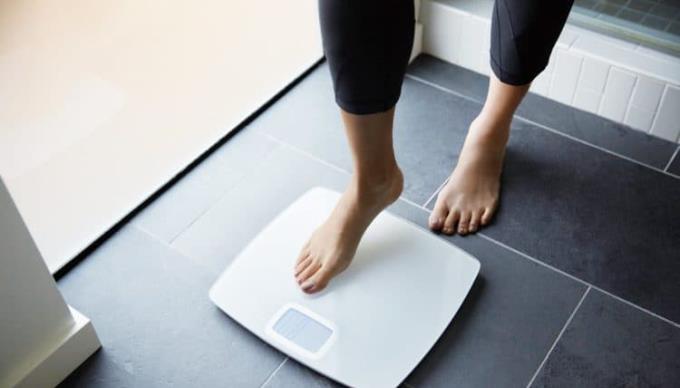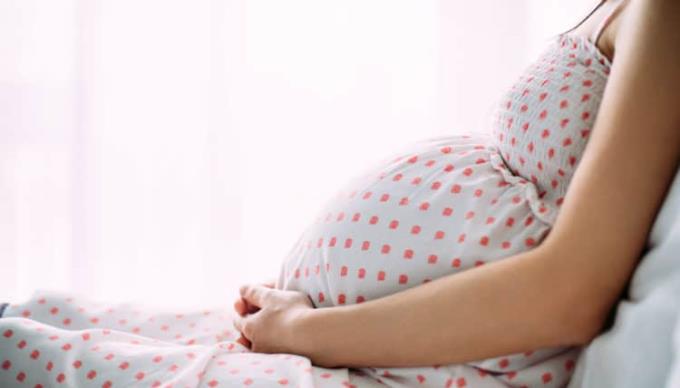You want to have children, but the couple has been married for a few years but still has no sign? Maybe the factors affecting the fertility of the two of you are the things you have never thought of here.
Have you heard many people advise to stop smoking, alcohol and lose weight if you want to become pregnant? These tips are absolutely correct. However, there are still a number of other factors that can also adversely affect your ability to conceive successfully. Let's find out with aFamilyToday Health with the following article!
1. Weight

The first factor affecting fertility that aFamilyToday Health wants to talk about is weight. One study shows that overweight and obesity in women can adversely affect fertility as well as the effectiveness of measures that increase the likelihood of pregnancy. According to experts, losing 5% -10% of your body weight can significantly increase ovulation and pregnancy rates. Therefore, you should lose weight to improve fertility and a higher chance of conception.
In addition, there is also research showing that obesity in men can decrease fertility through effects on hormones as well as sperm quality. Obesity also has a risk of infertility and leads to low testosterone in men.
2. Nutrition - factors affecting the ability to conceive

Diet has a significant effect on the ability to conceive. A lack of vitamins and essential nutrients can keep you from getting pregnant. Therefore, you should regularly include foods that increase fertility such as:
Lentils: High in B vitamins , which play an important role in fertility hormones (estrogen and progesterone).
Eggs: Not only are they rich in protein and good fats, they also contain choline - a phospholipid that plays an important role in reproduction. Choline helps metabolize fatty acids and detoxifies the liver , prevents fatty liver and liver toxicity. Choline is great for people with polycystic ovary syndrome because it controls insulin and fat metabolism, thereby optimizing fertility. Every week, you should eat about 4-6 eggs to support fertility.
Broccoli: contains many antioxidants, helps to metabolize estrogen, improves oxidation and supports health that make it easier for you to conceive .
Red meat: the thyroid gland plays an important role in ovulation. For the thyroid to function properly, you need to get enough iron. Iron is abundant in many foods, but red meat is the richest source of this mineral.
In addition, do not forget to limit foods that adversely affect the ability to conceive to increase your chances of getting pregnant earlier.
3. Consume a lot of caffeine

Excessive caffeine consumption is also one of the factors affecting fertility. A study by the Nevada School of Medicine found that caffeine can reduce the activity of muscles in the fallopian tubes, which carry eggs from the ovaries to the uterus. Another study published by the European Society for Reproduction and Artificial Surgery found that drinking more than 5 cups of coffee a day can reduce the effectiveness of in vitro fertilization by 50%. This is considered one of the factors that affect the ability to conceive that few people pay attention to.
4. Environmental factors affect fertility

There is increasing evidence that habitat is a factor in fertility as well. If you want to quickly become pregnant, you should avoid contact with plastics, especially plastic bags. Contaminants, pesticides and industrial compounds are also considered to be among the causes of infertility and can reduce fertility by up to 29%. Additionally, a University of Washington study found that 15 common chemicals, including phthalates found in many personal beauty and care products, are associated with early menopause.
5. Excessive sports practice

Exercise is very healthy, and regular exercise several times a week will increase your chances of conceiving. However, according to a study by the Norwegian University of Science and Technology , extreme exercise in the opposite direction can make it harder to conceive .
One simple way to see if you're exercising too much is to pay attention to your menstrual cycle. If your menstrual cycle is irregular or becomes shorter than before, you may be working out too hard. Change your workout schedule and exercise intensity right away to eliminate this fertility factor.
6. Genetics - factors affecting the ability to conceive

Genetics is also one of the factors that influence fertility, mainly through a link in menopause . Most women experience this period between the ages of 48 and 55. However, there is still early menopause before the age of 40.
If your mother goes into menopause early, there's a good chance you'll have the same thing. This is not a dangerous health problem, but you should be aware of the risk of menopause early if you intend to delay your pregnancy for a few more years.
7. Age

The effect of age on fertility may be more than you think. Years after the age of 30, your fertility will gradually decline. In addition, age also makes it harder for infertility and infertility treatments to be more successful. Experts recommend that you go to your doctor if you are under 35 years old and have tried to get pregnant for more than a year or are over 35 and have tried to get pregnant for more than 6 months but still have no results. You should see a specialist for more detailed advice.
Hopefully, with the above information on factors affecting fertility, you will easily recognize what is the cause of the difficulty of conceiving and soon find the appropriate solution. .


















